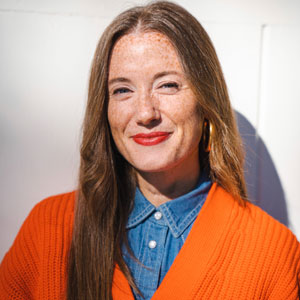Dr. Morgan-Mullane’s work explores the intersection of mental health practice, social work, social policy, and systemic oppression within all therapeutic systems of care. Dr. Morgan-Mullane teaches in Master's and Doctoral programs on several courses she developed on the intersectionality of clinical practice, policy, and mental health implications for those impacted by systemic harm. Dr. Morgan-Mullane has a private practice of 23 years and a supervision practice where she employs intersectional anti-oppressive and trauma-responsive therapeutic practices and guidance to those most impacted by trauma. Dr. Morgan-Mullane’s clinical orientation with individuals, couples, and families is in Narrative Therapy, Psychodynamic Therapy, Family Systems Therapy, and Somatic practices rooted and informed by abolitionist frameworks. In 2012, Dr. Morgan-Mullane successfully established the first outpatient mental health clinic in the United States specifically designed to address the experiences and narratives of children and adolescents impacted by hyperincarceration. Dr. Morgan-Mullane has also developed clinical policies and practice guidelines and launched an evidence-informed treatment model that includes the employment of Trauma-Focused Cognitive Behavioral Therapy, Narrative Therapy, complex trauma systems theory, and Mitigation Practices for several community-based mental health settings across New York City and Los Angeles.
Dr. Morgan-Mullane obtained her Masters in Social Welfare at Fordham University and her Doctorate in Social Welfare at New York University Silberman School of Social Work.
As an educator and clinician, my teaching philosophy is deeply rooted in a commitment to trauma-responsive care, anti-racist, and anti-oppressive practices, and fostering an accountable learning environment. I believe that training future clinicians is not simply about transmitting knowledge but about cultivating a deep sense of ethical responsibility, cultural humility, and active engagement in dismantling systemic barriers within mental healthcare. My goal is to prepare students to be both skilled healers and intentional disruptors—challenging oppressive systems while providing care that is just, equitable, and transformative.
Trauma does not exist in isolation—it is shaped by historical, systemic, and interpersonal contexts. My teaching integrates trauma-responsive frameworks that acknowledge the impact of adverse experiences, systemic oppression, and structural violence on individuals, families, and communities. I challenge students to move beyond a pathologizing lens and to develop a nuanced understanding of trauma as a survival response, rather than a disorder to be “fixed.” By incorporating principles of safety, trust, collaboration, and empowerment, I support students in developing a clinical stance that is affirming and healing-centered rather than deficit-based.
In my classroom, we explore models such as polyvagal theory, attachment-based interventions, narrative therapy, and somatic healing practices, ensuring that students understand the body-mind connection in trauma treatment. I encourage self-reflection, urging students to examine their own nervous system responses and implicit biases so they can engage in truly attuned and responsive clinical work.
Mental healthcare has a long history of racialized, gendered, and ableist oppression—from the medicalization of Black resistance to the pathologization of queer and neurodivergent identities. As educators, we have a responsibility to deconstruct the harm that has been embedded in our field and equip future clinicians with the critical tools to challenge oppressive systems. My goal is to train clinicians who are active disruptors of harm and facilitators of healing—not just within their therapy rooms but in their institutions, policies, and communities. Healing is both an individual and collective act, and I urge students to see their work as deeply political. Whether working in clinical settings, advocacy, research, or grassroots organizing, clinicians must recognize their role in reshaping mental health systems to be more just, liberatory, and person-centered.
Through this commitment to trauma-responsive, anti-racist, and accountable teaching, I hope to inspire students to become clinicians who are not only skilled practitioners but also courageous, ethical, and transformative agents of change in the world.
- Morgan-Mullane, A. (2017) Trauma Focused Cognitive Behavioral Therapy with Children of Incarcerated Parents. Clinical Social Work Journal. Advance online publication. https://doi.org/10.1007/s10615-017-0642-5
- Morgan-Mullane, A. (2020) COVID-19 and the Injustice System: Reshaping Clinical Practice for Children of Incarcerated and Families Impacted by Hyper-Incarceration. In C. Tosone (Ed.), Shared Trauma, Shared Resilience During a Pandemic: Social Work in the Time of COVID-19 (pp. 291-301). Springer.
BOOKS
- Morgan-Mullane, A. An Integrative Approach to Clinical Social Work Practice with Children of Incarcerated Parents: A Clinician's Guide (Essential Clinical Social Work Series) 2023rd Edition Springer
- Morgan-Mullane, A. and Ware, J. I. Healing Racial Wounds: Dismantling Anti-Black Racism in Mental Health Care Practice (Under contract with Lexington Books)
- “Healing Racial Wounds: Dismantling Anti-Blackness Mental Health Care Practice” 26th Annual Conference of the Society for Social Work and Research (SSWR), Washington D.C. January 2022
- “Healing Racial Trauma: Dismantling Anti-Blackness in Social Work Practice and Education, UNC School of Social Work, North Carolina, September 2021
- “Somatic Abolition: Unpacking Anti-Blackness in Social Work Practice and Education, NASW Social Work in the City: New Opportunities in Changing Times Conference, NYC June 2021
- Treating Mass Incarceration as a Systemic Childhood Trauma” The American Professional Society of the Abuse of Children 27th Annual Colloquium, New Orleans, Louisiana, June 2020
- Somatic Psychology: Waking up the Body
- Intimate Relationships
- Society and the Individual
- Loss and Bereavement through Lifecycle
- Substance related Disorders and other Addictive Behaviors
- Psychopathology

